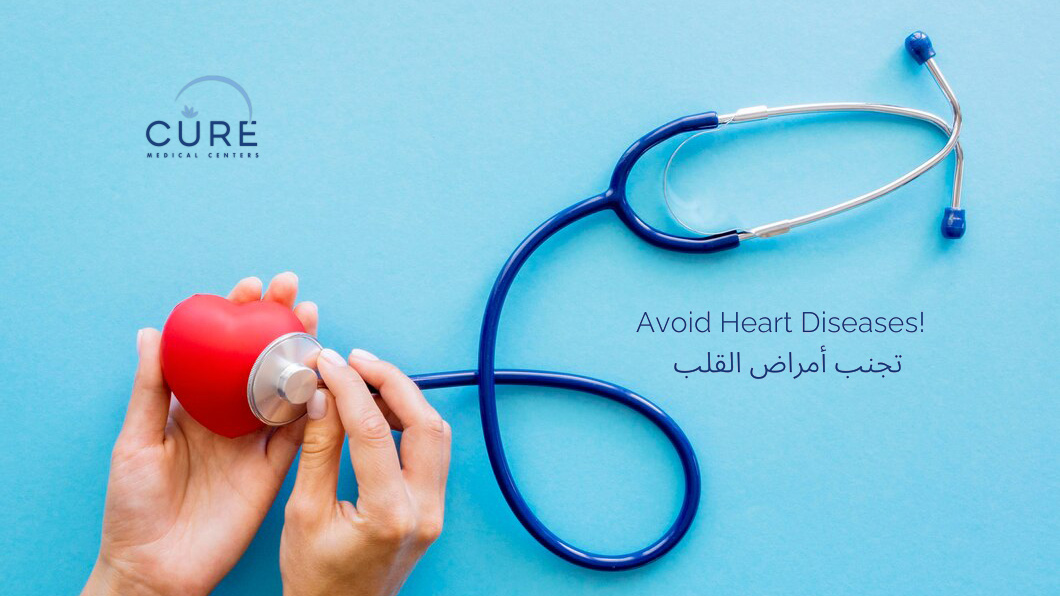
Among the other leading causes of morbidity and mortality in the MENA region, various forms of cardiovascular diseases take priority. Recognizing the risk factors that predispose one to the disease, its early signs, and how timely detection can make all the difference between life and death.
Common Risk Factors
- Hypertension: Generally asymptomatic, hence the importance of frequent checkups.
- High Levels of Cholesterol: It is the end result of high levels of LDL, which eventually leads to plaque deposit along the wall of the arteries.
- Diabetes: This contributes to a major increase in the risk of heart disease.
- Being Overweight: The excess weight carried will continue taking an extra load on the heart.
- Sedentary Lifestyle: This leads to a multitude of other issues.
- Smoking: Damages blood vessels and reduces oxygen supply.
- Family History: Your risk partly depends upon your genes.
- Age: Risk of developing the problem with age, especially in men above 45 and women above 55.
Early Warning Signs of Heart Disease
- Chest Pain or Discomfort: This is described as pressure or squeezing.
- Shortness of breath: This can occur when exerting oneself or at rest.
- Fatigue: Unexplained tiredness that does not resolve.
- Heart palpitations: Heartbeats that feel irregular, or particularly rapid
- Swelling: Manifesting in your legs, ankles, or feet and signifying fluid buildup.
- Nausea or indigestion: Sometimes, these kinds of symptoms are mistaken for stomach-related problems.
The Importance of Early Detection
- Improved Outcomes: The treatments, if given at an early stage, can prevent serious complications.
- Lifestyle Changes: The identified risks will facilitate changing lifestyle habits in time.
- A health professional may formulate a customized program, based on the identified risk profile, for managing the risks.
Healthy Lifestyle Practices
- Regular Exercise: A minimum of 150 minutes of moderate aerobic exercise, 75 minutes per week of vigorous aerobic activity (or a combination of both) is recommended throughout the week.
- Healthy Diet: It is recommended to include lots of fruits, vegetables, whole grain foods, lean proteins, less salt, and reduced sugar in your diet.
- Keep Healthy Weight: Normal BMI should be achieved through proper lifestyle.
- Do Not Drink Too Much Alcohol: Lower alcohol consumption can reduce the risk.
- Quit Smoking: Programs should be given that can help in quitting smoking.
- Routine Check-ups: Ensure going for regular check-ups of your blood pressure, cholesterol, and glucose.
Skilled Care at Cure Medical Centers
At Cure Medical Centers, we find the diseases of the heart complex and plan special care in the light of each patient's individual needs. Such services include:
- Full Risk Assessment: We measure personal risk factors and create tailored prevention plans.
- Advanced Diagnostics: Utilize cutting-edge imaging and testing for unparalleled early detection.
- Nutritional Counseling: This is a professional approach to heart-healthy eating habits.
- Ongoing Support: Ongoing access to monitoring and support with a team of specialists.
Conclusion
Heart disease is treatable if one has the knowledge and support. It calls for realisation of risk factors, early signs, and prioritization of prevention. We commit to availing care that supports heart health to people within the MENA region.
Book your appointment today and take that first step to good heart health.